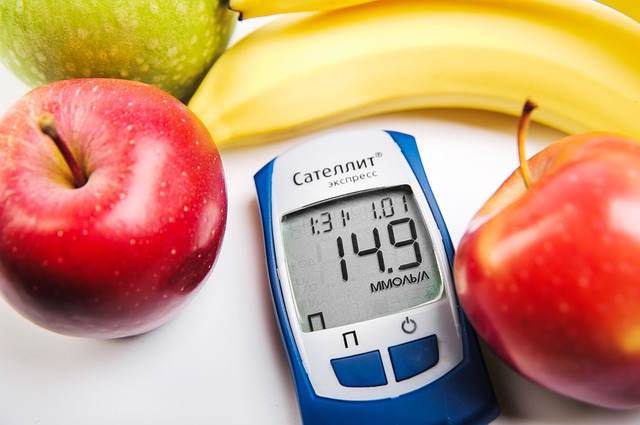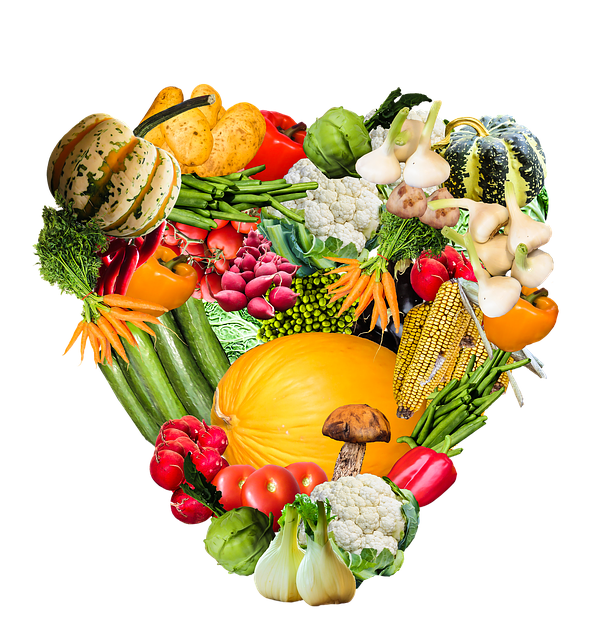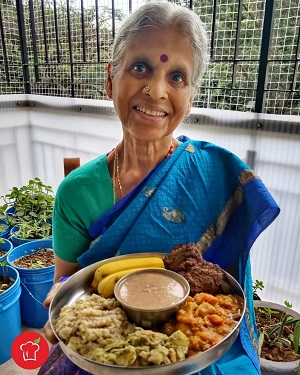Are you interested in learning more about the health benefits of eating a plant based diet? In this article, we’ll discuss what makes a plant based diet healthy as compared to animal products, and why it’s becoming increasingly popular among people who want to live healthier lives.
Plant Based Diets and Vegan Diets are gaining popularity because they help reduce the risk of heart disease, diabetes, cancer, obesity, and other chronic diseases. They also promote weight loss and improve overall health.
Ditching animal products and eating healthy plant-based foods may be a great choice for anyone who wants to lose weight, feel better, and live longer. But how exactly does a plant-based diet help you achieve these health benefits?
A Plant-Based Diet May Support Weight Loss
Vegan diets are lower in calories and fat than regular diets, whether it is a western diet or even an urban Indian diet, so they're ideal to lose excess weight and achieve your healthy weight.
They're also rich in fiber, protein, vitamins, minerals, antioxidants, and phytochemicals—all of which help keep you feeling full and satisfied.
The International Journal of Obesity and Related Metabolic Disorders is the official journal of the International Association for the Study of Obesity. After analysing the impact of diet on body composition of 38,000 people from the EPIC-Oxford Study, they concluded that vegans are closest to their ideal body mass index or healthy weight because of their higher fiber intake and lower calorie intake.
What if you change your diet now? According to research published by the American Journal of Clinical Nutrition, a plant-based vegan diet may be a great option for losing weight if you're already overweight.
It could start with a simple yet effective strategy like swapping white rice with brown rice, or eating more fresh fruit and vegetables.
As a bonus, if you're diabetic, a low fat vegan diet also helps you reduce your blood sugar better than the standard Western diet and even the diet recommended by the American Diabetes Association!
A Plant-Based Diet May Lower Your Blood Pressure
There are many reasons to adopt a diet rich in whole plant based foods. One of the most important is that it can help you reduce your blood pressure.
High blood pressure may lead to increased risk of stroke, heart attack and kidney failure. It is considered one of the most dangerous risk factors for early mortality.
According to new research from the Adventist Health Study 2, vegans or vegetarians who ate meals without meat & dairy products were less likely to develop hypertension than omnivores, and had a lower blood pressure overall. Dairy foods may not be so healthy, after all.
Many people think that the blood pressure lowering effects of a plant-based vegan diet is just because it helps reduce weight, and therefore reduce BP.
However, a 2016 study published in the Journal of Hypertension found that a Vegetarian diet reduces the risk of hypertension independent of abdominal obesity and inflammation.
This means, even if you don't lose weight, reducing dairy intake and adopting a plant-based diet can still help you lower blood pressure.
A Plant-Based Diet May Help Your Heart Stay Healthy
Cardiovascular disease is the leading cause of death in India today, according to the Global Burden of Disease Study.
Ischemic heart disease of one of the chronic diseases that may be largely preventable, treatable and even reversible in some cases, with a healthy diet and lifestyle.
A huge 2017 study assessed more than 70,000 men and women and found that those who improved their diets the most appear to enjoy up to 17% reduction in cardiovascular disease risk.
A Plant-Based Diet May Help Prevent & Reverse Type 2 Diabetes
Type 2 diabetes is a common condition that affects around 400 million people worldwide. If left untreated, it can lead to serious health complications such as blindness, kidney failure, amputations, stroke, heart attack, and death.
While diet plays a role in reducing risk of type 2 diabetes, it is often overlooked by patients who feel overwhelmed by the sheer number of food choices available.
However, there is good news. Research shows that a plant-based diet may help drop diabetes risk and even reverse type 2 diabetes by improving glycemic control.
Diabetes is one of those chronic conditions for which you may have heard you need to take lifelong medications for. But dietary factors may matter even more than medicines!
In fact, lifestyle changes could be even more effective that medications in preventing type 2 diabetes! In 2002, a group of researchers studied just this. They took 3,000+ people and randomly assigned them to three groups:
- Placebo group
- Medication group (Metformin)
- Lifestyle Change group
They found that lifestyle changes and treatment with metformin both reduced the incidence of
diabetes in persons at high risk. No surprise there.
What they also found was the lifestyle intervention was more effective than metformin at preventing diabetes!
The lifestyle intervention reduced the incidence of diabetes by 58%, while metformin did it by 31%.
One thing to note here is that fruit juices may not be as effective as fresh fruit, and may actually contribute to higher blood sugar levels due to their lack of fiber.
Following a Plant-Based Diet Long Term May Help You Live Longer
The Oxford Vegetarian Study: An Overview, published in the American Journal of Clinical Nutrition found that simply avoiding meat could reduce the risk of death from all causes by up to 20%!
Non-meat-eaters enjoyed a 28% reduction in risk of heart disease and up to 40% reduction in cancer risk.
In the Adventist 2 Study, researchers analyzed data from nearly one lakh Americans who were followed for many years. They discovered that vegans had a 15% lower rates of death from all causes than non vegetarians.
They concluded that a plant-based diet might reduce cancer risks and best help you achieve a longer, healthier life.
A Plant-Based Diet May Decrease Your Risk of Cancer
An article published by the World Cancer Research Fund International summed up research findings in their recommendations. They said: "There is strong evidence that eating wholegrains protects against colorectal cancer, and that eating foods containing dietary fibre protects against colorectal cancer and against weight gain, overweight and obesity."
Here are four dietary goals that they recommend for preventing these types of cancer:
- Consume a diet that provides at least 30g per day of fibre from food (this is easy to get from healthy plant foods)
- Include foods containing wholegrains, non-starchy vegetables, fruit and pulses (legumes) such as beans and lentils in most meals
- Eat a diet high in all types of plant foods including at least five portions or servings (at least 400g or 15oz in total) of a variety of non-starchy vegetables and fruit every day
- If you eat starchy roots and tubers as staple foods, eat non-starchy vegetables, fruit and pulses (legumes) regularly too if possible
A Plant-Based Diet May Improve Your Cholesterol Levels
Cholesterol is a waxy substance found inside cells. It helps keep your body healthy by helping build cell walls and making hormones.
However, when we eat foods containing saturated fat cholesterol, our body makes more cholesterol than it needs. This excess cholesterol then gets stored in our liver and blood vessels and does not get excreted when we eat a fiber-deficient diet. Ideally, you want to aim for the lower ranges of LDL cholesterol as well as HDL cholesterol.
The British Nutrition Foundation carried an article about a report published by The Scientific Advisory Committee on Nutrition (SACN), UK about saturated fats and health.
This is the summary of their findings:
- Higher saturated fat consumption is linked to raised blood cholesterol
- Higher intakes of saturated fat are associated with increased risk of heart disease
- Saturated fats should be swapped with unsaturated fats
The top sources of saturated fat and cholesterol are animal foods and some processed foods like coconut oil and palm oil. The same foods are also fiber-deficient, and may contribute to higher cholesterol levels.
Whole foods, plant based diet contains fat sources like nuts and seeds. These have low to no saturated fat, no cholesterol and high fiber content - all of which may help you improve your cholesterol levels.
The potential benefits of reducing cholesterol levels include a lower risk of coronary heart disease and even cancer.
Eating a Plant-Based Diet May Minimize Your Risk of Stroke
A study published by the American Academy of Neurology found that eating a plant-based diet could help reduce the risk of stroke by almost 50 percent.
Researchers from Taiwan analyzed data from more than 13,000 adults in 2020. They compared participants who ate meat, fish, poultry, eggs, and dairy products (non-vegetarians) with those who ate mostly vegetables, legumes, nuts, whole grains, and fruits but may be consuming some dairy products (vegetarians).
Participants were followed for almost 13 years. During this time, 175 strokes occurred.
Those with the highest intake of animal protein had a higher risk of stroke than those who ate the least.
The researchers concluded that eating a plant-rich diet may help protect against stroke.
Ramping Up Your Plant Intake May Keep Your Brain Strong
You know that plant-based food are good for you. They help keep your body healthy by providing antioxidants, vitamins, minerals, fiber, and chlorophyll. But did you know that they may also improve brain health and prevent cognitive impairment?
A study published by the American Academy of Neurology found that eating diets centered around more vegetables and fresh fruit daily as part of a healthy lifestyle can reduce the risk of developing Alzheimer’s disease by up to 60%.
9 Reasons Why A Plant Based Diet Could Be Perfect Fit For You
Plant-based diets have been around for centuries. The traditional Indian diet was mostly healthy plant foods that may have protected us from several chronic diseases.
They're often referred to as "whole foods, plant based diet" because they include fruits, vegetables, whole grains, nuts, seeds, beans, legumes, and other healthy foods.
It's important to note that these types of diets aren't just for vegetarians. In fact, many people who an animal-based diet also incorporate plant-based meals into their weekly routine to start moving towards a healthier diet.
The main reason why people adopt a plant-based diet is health. There are several studies showing that eating a plant-based diet can have several potential health benefits including reducing your risk of heart disease, diabetes, cancer, and obesity.
They may even influence the health of your organs. For example, among sources of protein, choosing plant protein rather than animal protein could protect kidney health.
There are also plenty of studies showing that a plant-based diet has positive effects on mental health.
So, if you're looking to improve your overall health, consider adopting a plant-based diet.
Of course, there are healthful and unhealthful plant-based diets. That's why a whole foods, plant-based diet can give you maximum benefits for your health and not just any plant-based diet.
Get my free ebook on how to cook 100+ Whole Food Plant Based Recipes for FREE now!
If you're ready to make the shift, there is a fantastic Plant-based Diet Masterclass you can check out on NutritionScience.in
In case you haven't yet, you can even get a Plant-based Meal or Goodies delivered to your doorstep and personally experience how it feels today!





